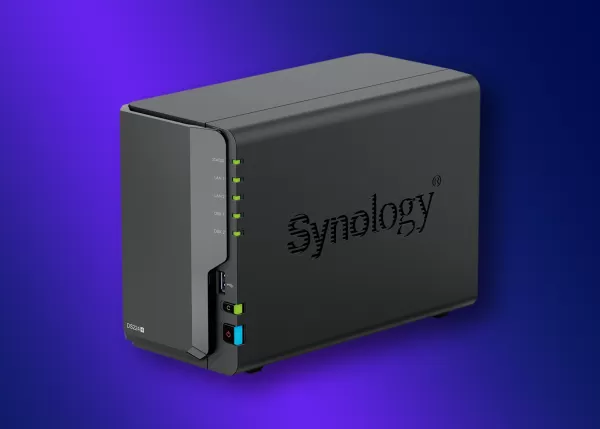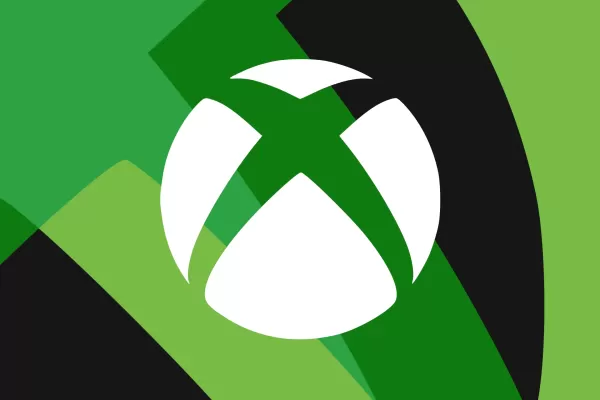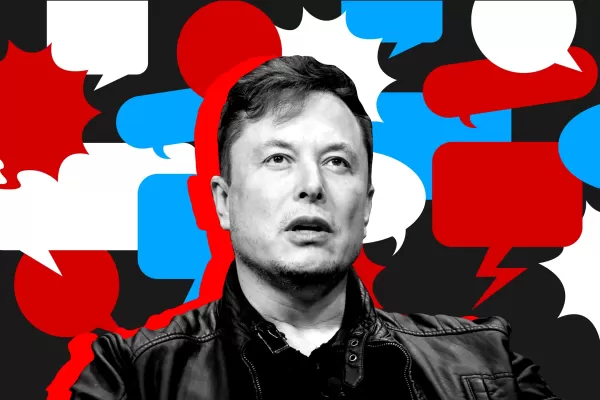Synology Tightens Restrictions on Third-Party NAS Hard Drives

Synology, a well-known name in the world of network attached storage (NAS), has announced some significant changes coming to its future devices. According to a statement given to *Ars Technica*, the company is set to introduce new restrictions on the use of third-party hard drives in its upcoming NAS models. This move could make it more challenging for users to utilize non-Synology drives for common tasks such as backing up household computers or running local media servers. However, there's a silver lining for current Synology NAS owners: these changes won't impact your existing devices.
In an EU press release, Synology specified that "starting with Plus Series models released in 2025," only drives that are either Synology-branded or certified by the company will provide access to the full suite of features and support. *Ars* reports that Synology will update its compatibility lists to clearly indicate which third-party drives have been certified.
What Does This Mean for Users?
Without Synology-approved drives, users might find themselves unable to perform essential functions like pooling storage across multiple disks or utilizing the company's drive lifespan analysis tools. It's worth noting that these restrictions won't apply to Synology's J- and Value-series devices, nor will they affect consumer-grade Synology Plus devices released in 2024 or earlier. Additionally, hard drives transferred from existing NAS systems to this year's models will remain unaffected, as per the company's press release.
Why the Change?
A Synology spokesperson explained to *Ars* that the decision stems from "extensive internal testing," which has shown that drives subjected to a rigorous validation process are less likely to fail and cause ongoing compatibility issues when used with Synology systems. The company's press release echoes this sentiment, stating that the new restrictions aim to "reduce compatibility issues and increase system reliability and performance." Synology did not immediately respond to *The Verge*'s request for further comment.
While these restrictions might be frustrating, it's worth acknowledging that Synology is implementing them in a less harsh manner than, say, a printer company that might block third-party ink through a software update. Still, the reality remains that future Synology NAS device owners will have fewer options—and potentially higher costs—when it comes to choosing the hard drives they'll use.
Related article
 YouTube Integrates Veo 3 AI Video Tool Directly Into Shorts Platform
YouTube Shorts to Feature Veo 3 AI Video Model This SummerYouTube CEO Neal Mohan revealed during his Cannes Lions keynote that the platform's cutting-edge Veo 3 AI video generation technology will debut on YouTube Shorts later this summer. This follo
YouTube Integrates Veo 3 AI Video Tool Directly Into Shorts Platform
YouTube Shorts to Feature Veo 3 AI Video Model This SummerYouTube CEO Neal Mohan revealed during his Cannes Lions keynote that the platform's cutting-edge Veo 3 AI video generation technology will debut on YouTube Shorts later this summer. This follo
 Microsoft Teases Budget-Friendly Xbox Cloud Gaming Subscription
Microsoft Explores Affordable Options for Xbox Cloud GamingNew developments suggest Microsoft is moving forward with plans to make Xbox Cloud Gaming more budget-friendly. Following earlier reports about a potential free ad-supported version, company
Microsoft Teases Budget-Friendly Xbox Cloud Gaming Subscription
Microsoft Explores Affordable Options for Xbox Cloud GamingNew developments suggest Microsoft is moving forward with plans to make Xbox Cloud Gaming more budget-friendly. Following earlier reports about a potential free ad-supported version, company
 Elon Musk's Grok AI Seeks Owner's Input Before Tackling Complex Queries
The recently released Grok AI—promoted by Elon Musk as a "maximally truth-seeking" system—has drawn attention for its tendency to consult Musk's public statements before responding to politically sensitive topics. Observers note that when addressing
Comments (16)
0/200
Elon Musk's Grok AI Seeks Owner's Input Before Tackling Complex Queries
The recently released Grok AI—promoted by Elon Musk as a "maximally truth-seeking" system—has drawn attention for its tendency to consult Musk's public statements before responding to politically sensitive topics. Observers note that when addressing
Comments (16)
0/200
![KevinAnderson]() KevinAnderson
KevinAnderson
 August 11, 2025 at 4:01:33 PM EDT
August 11, 2025 at 4:01:33 PM EDT
Synology's move to restrict third-party drives feels like a sneaky way to lock users into their ecosystem. 😕 I get they want control, but this could alienate DIY fans who love NAS for its flexibility. Anyone else worried about the cost creep?


 0
0
![KeithMoore]() KeithMoore
KeithMoore
 August 10, 2025 at 9:00:59 AM EDT
August 10, 2025 at 9:00:59 AM EDT
Synology's move to restrict third-party drives feels like a cash grab. Locking users into their ecosystem is frustrating—freedom to choose hardware matters! 😒


 0
0
![MarkWilson]() MarkWilson
MarkWilson
 August 4, 2025 at 2:01:00 AM EDT
August 4, 2025 at 2:01:00 AM EDT
Synology's move to restrict third-party drives feels like a walled garden approach—kinda frustrating for DIY enthusiasts like me! 😕 Curious how this impacts performance vs. their branded drives.


 0
0
![DouglasMartínez]() DouglasMartínez
DouglasMartínez
 August 1, 2025 at 2:08:50 AM EDT
August 1, 2025 at 2:08:50 AM EDT
Wow, Synology locking down third-party drives? Kinda feels like they're trying to trap us into their ecosystem. Hope this doesn’t jack up prices! 😕


 0
0
![JonathanRamirez]() JonathanRamirez
JonathanRamirez
 July 29, 2025 at 8:25:16 AM EDT
July 29, 2025 at 8:25:16 AM EDT
Synology's move to restrict third-party drives feels like a cash grab. Locking users into their ecosystem is such a bummer—why not let us choose our own hardware? 😕


 0
0
![JohnHernández]() JohnHernández
JohnHernández
 July 27, 2025 at 9:19:30 PM EDT
July 27, 2025 at 9:19:30 PM EDT
Synology's move to lock down third-party drives feels like a cash grab. Why limit user choice when NAS is all about flexibility? 😒 I get they want reliability, but this could push folks to competitors.


 0
0

Synology, a well-known name in the world of network attached storage (NAS), has announced some significant changes coming to its future devices. According to a statement given to *Ars Technica*, the company is set to introduce new restrictions on the use of third-party hard drives in its upcoming NAS models. This move could make it more challenging for users to utilize non-Synology drives for common tasks such as backing up household computers or running local media servers. However, there's a silver lining for current Synology NAS owners: these changes won't impact your existing devices.
In an EU press release, Synology specified that "starting with Plus Series models released in 2025," only drives that are either Synology-branded or certified by the company will provide access to the full suite of features and support. *Ars* reports that Synology will update its compatibility lists to clearly indicate which third-party drives have been certified.
What Does This Mean for Users?
Without Synology-approved drives, users might find themselves unable to perform essential functions like pooling storage across multiple disks or utilizing the company's drive lifespan analysis tools. It's worth noting that these restrictions won't apply to Synology's J- and Value-series devices, nor will they affect consumer-grade Synology Plus devices released in 2024 or earlier. Additionally, hard drives transferred from existing NAS systems to this year's models will remain unaffected, as per the company's press release.
Why the Change?
A Synology spokesperson explained to *Ars* that the decision stems from "extensive internal testing," which has shown that drives subjected to a rigorous validation process are less likely to fail and cause ongoing compatibility issues when used with Synology systems. The company's press release echoes this sentiment, stating that the new restrictions aim to "reduce compatibility issues and increase system reliability and performance." Synology did not immediately respond to *The Verge*'s request for further comment.
While these restrictions might be frustrating, it's worth acknowledging that Synology is implementing them in a less harsh manner than, say, a printer company that might block third-party ink through a software update. Still, the reality remains that future Synology NAS device owners will have fewer options—and potentially higher costs—when it comes to choosing the hard drives they'll use.
 YouTube Integrates Veo 3 AI Video Tool Directly Into Shorts Platform
YouTube Shorts to Feature Veo 3 AI Video Model This SummerYouTube CEO Neal Mohan revealed during his Cannes Lions keynote that the platform's cutting-edge Veo 3 AI video generation technology will debut on YouTube Shorts later this summer. This follo
YouTube Integrates Veo 3 AI Video Tool Directly Into Shorts Platform
YouTube Shorts to Feature Veo 3 AI Video Model This SummerYouTube CEO Neal Mohan revealed during his Cannes Lions keynote that the platform's cutting-edge Veo 3 AI video generation technology will debut on YouTube Shorts later this summer. This follo
 Microsoft Teases Budget-Friendly Xbox Cloud Gaming Subscription
Microsoft Explores Affordable Options for Xbox Cloud GamingNew developments suggest Microsoft is moving forward with plans to make Xbox Cloud Gaming more budget-friendly. Following earlier reports about a potential free ad-supported version, company
Microsoft Teases Budget-Friendly Xbox Cloud Gaming Subscription
Microsoft Explores Affordable Options for Xbox Cloud GamingNew developments suggest Microsoft is moving forward with plans to make Xbox Cloud Gaming more budget-friendly. Following earlier reports about a potential free ad-supported version, company
 Elon Musk's Grok AI Seeks Owner's Input Before Tackling Complex Queries
The recently released Grok AI—promoted by Elon Musk as a "maximally truth-seeking" system—has drawn attention for its tendency to consult Musk's public statements before responding to politically sensitive topics. Observers note that when addressing
Elon Musk's Grok AI Seeks Owner's Input Before Tackling Complex Queries
The recently released Grok AI—promoted by Elon Musk as a "maximally truth-seeking" system—has drawn attention for its tendency to consult Musk's public statements before responding to politically sensitive topics. Observers note that when addressing
 August 11, 2025 at 4:01:33 PM EDT
August 11, 2025 at 4:01:33 PM EDT
Synology's move to restrict third-party drives feels like a sneaky way to lock users into their ecosystem. 😕 I get they want control, but this could alienate DIY fans who love NAS for its flexibility. Anyone else worried about the cost creep?


 0
0
 August 10, 2025 at 9:00:59 AM EDT
August 10, 2025 at 9:00:59 AM EDT
Synology's move to restrict third-party drives feels like a cash grab. Locking users into their ecosystem is frustrating—freedom to choose hardware matters! 😒


 0
0
 August 4, 2025 at 2:01:00 AM EDT
August 4, 2025 at 2:01:00 AM EDT
Synology's move to restrict third-party drives feels like a walled garden approach—kinda frustrating for DIY enthusiasts like me! 😕 Curious how this impacts performance vs. their branded drives.


 0
0
 August 1, 2025 at 2:08:50 AM EDT
August 1, 2025 at 2:08:50 AM EDT
Wow, Synology locking down third-party drives? Kinda feels like they're trying to trap us into their ecosystem. Hope this doesn’t jack up prices! 😕


 0
0
 July 29, 2025 at 8:25:16 AM EDT
July 29, 2025 at 8:25:16 AM EDT
Synology's move to restrict third-party drives feels like a cash grab. Locking users into their ecosystem is such a bummer—why not let us choose our own hardware? 😕


 0
0
 July 27, 2025 at 9:19:30 PM EDT
July 27, 2025 at 9:19:30 PM EDT
Synology's move to lock down third-party drives feels like a cash grab. Why limit user choice when NAS is all about flexibility? 😒 I get they want reliability, but this could push folks to competitors.


 0
0





























